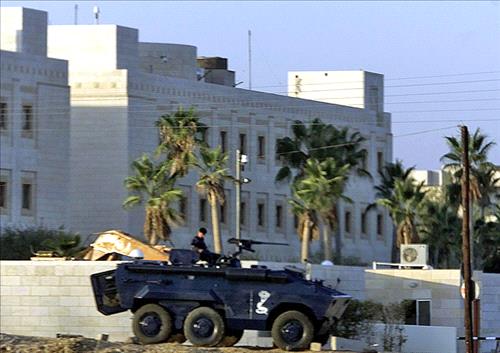Ammon News - WASHINGTON (Reuters) - The United States issued a worldwide travel alert on Friday warning Americans that al Qaeda may be planning attacks in August, particularly in the Middle East and North Africa.
The State Department travel alert was based on the same intelligence that prompted it to close 21 U.S. embassies and consulates on Sunday, August 4, chiefly those in the Muslim world, a U.S. official told Reuters on condition of anonymity.
"The Department of State alerts U.S. citizens to the continued potential for terrorist attacks, particularly in the Middle East and North Africa, and possibly occurring in or emanating from the Arabian Peninsula," its statement said.
"Current information suggests that al Qaeda and affiliated organizations continue to plan terrorist attacks both in the region and beyond, and that they may focus efforts to conduct attacks in the period between now and the end of August," it added, saying the travel alert would expire on August 31.
Among the most prominent of al Qaeda's affiliates is Al Qaeda in the Arabian Peninsula, a Yemen-based group whose attempted attacks included the Christmas Day 2009 attempt to blow up a Northwest Airlines flight from Amsterdam to Detroit.
U.S. security sources, speaking on condition of anonymity, said the threat was related to AQAP but there was not a specific target. They also said that it was aimed at Western interests, an assessment later confirmed by the top U.S. military officer.
"The intent is to attack Western, not just U.S. interests," General Martin Dempsey, chairman of the U.S. Joint Chiefs of Staff, told ABC News in an interview to be broadcast on its "This Week" program on Sunday.
"There is a significant threat stream and we're reacting to it," he said, adding that the kind of potential attack was "unspecified."
Britain said it would close its embassy in Yemen on Sunday and Monday. "We are particularly concerned about the security situation in the final days of Ramadan and into Eid," Britain's Foreign Office said in a statement, referring to the Muslim holy month which ends on Wednesday.
'SOME SPECIFICITY'
A U.S. official who spoke on condition of anonymity said the threat was serious and that the U.S. government had reacted in such a dramatic manner "because we have some specificity but not enough."
On Thursday, the State Department said U.S. embassies that would normally be open on Sunday - chiefly those in the Muslim world - would be closed that day because of security concerns, adding that they might be shut for a longer period.
The embassies in the following countries will be closed: Afghanistan, Algeria, Bahrain, Bangladesh, Djibouti, Egypt, Iraq, Jordan, Kuwait, Libya, Mauritania, Oman, Qatar, Saudi Arabia, Sudan, the United Arab Emirates and Yemen.
The consulates in Arbil, Iraq; Dhahran and Jeddah, Saudi Arabia; and Dubai, United Arab Emirates will also be shut.
The U.S. Embassy in Tel Aviv, which is normally closed to the public on Sunday, said all its facilities would be shut on Sunday and workers not essential for the building's security had been told not to come in.
It also said the American Center in Jerusalem and the Haifa Consular Agency would be closed on Sunday.
While the U.S. State Department routinely releases what it describes as a "Worldwide Caution" warning U.S. citizens of the general potential danger of attacks around the world, Friday's travel alert was based on more specific information, said one U.S. official who spoke on condition of anonymity.
The previous "Worldwide Caution" was issued on February 19.
U.S. officials declined to provide additional details about the intelligence that led them to close the diplomatic missions and to issue the worldwide travel alert.
However, a second U.S. official said there was no information on a specific target, which was the reason for the broad alert.
The chairman of the U.S. House of Representatives Foreign Affairs Committee, Ed Royce, said on CNN's "New Day" that he and several other lawmakers met two days ago with Vice President Joe Biden to discuss the threat.
Later on MSNBC, Royce said: "I believe that it is probably now prudent, given the fact that, in this case, we do have this intelligence, to take this step to make certain that we have fully protected our embassy personnel."
